The Linens Limited Guide To Sleeping Well
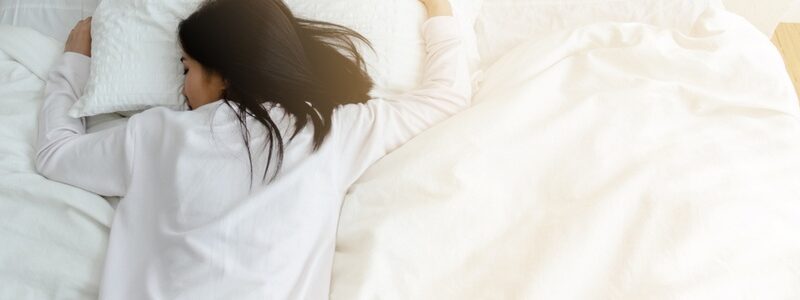
Our ‘Time for Sleep’ survey of over 1,100 people revealed that while 38% of the UK population claimed they got enough sleep, 62% said that they wanted more sleep. Of those who got enough sleep, 82% rated their sleep quality as ‘good’ or ‘excellent’.
To find out more, we consulted a number of sleep experts for their insights on how the nation can start sleeping better. Read on to discover what issues are holding us back from a great night’s sleep, and how you can improve your sleep with our experts’ top tips.
The UK’s sleep issues diagnosed
Not getting enough sleep
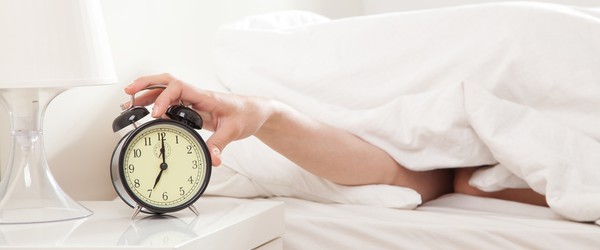
Due to our busy schedules and the ‘always-on’ mentality of our day-to-day lives – as a nation we’re finding it harder to sleep. But how much sleep should you be getting, and how do you know what amount is right for you?
Generally, sleep scientists advise that you should be getting between seven and nine hours per sleep – the exact amount will depend on the individual. Carl Walsh, the owner and resident sleep specialist at Bed Guru, advises that people aim for between seven-eight hours sleep.
“Often, someone will know if they are tired if they begin to lag halfway through the day, around lunch time. Concentration will start to waver and you will feel short on energy. Usually, signs of sleep deprivation will be subtle, and people tend to ignore this which only makes things worse.”
Carl Walsh
Sleep deficit and poor health
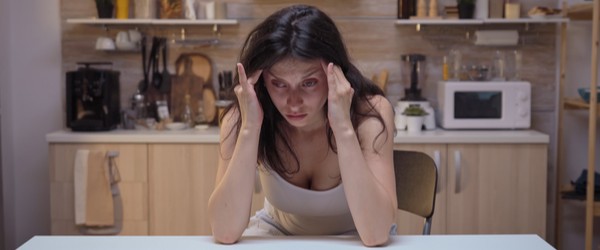
Sleep is one of the many biological processes that humans need, but that we are not fully aware of the reasons for. We know that sleep is restorative for the body and can help us to process events and subconscious thoughts, but we aren’t aware of the meaning and total benefits of certain sleep states such as REM sleep.
What we do know is the effects of sleep deprivation and how this can impact the body and mind. Lack of sleep – or even getting a poor quality of sleep – can cause a wide range of health problems, from heart disease to weight gain.
The effects of blue light
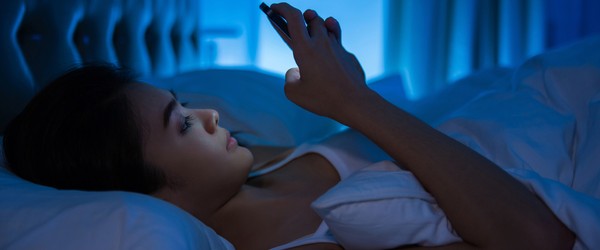
One shocking statistic that our research uncovered was that 57% of people use their phone in the bedroom, much to the dismay of sleep experts everywhere.
“Looking at your emails and social media before bed may also raise stress hormones in the body which can impact on sleep – not to say if the thoughts that are placed in your mind just before you go to bed are negative, they could have you up all night ruminating.”
Rob Hobson, nutritionist and author of The Art of Sleeping
Building good sleep habits from young

Getting a good amount of sleep is vital for adults and children alike, but children will need more because they are going through vital growing stages. Limiting sleep can have a negative effect on the development of a child, so it’s important to ensure that any little ones get a good night’s sleep.
“A set routine for children is very important. So for example, a bath, story, brush teeth, milk, bed. Our bodies react well to routine and the importance of a sleep routine is something we instil in our children very early on.”
Penny Weston, wellness entrepreneur and founder of wellness brand MADE
Not using sleep aids effectively
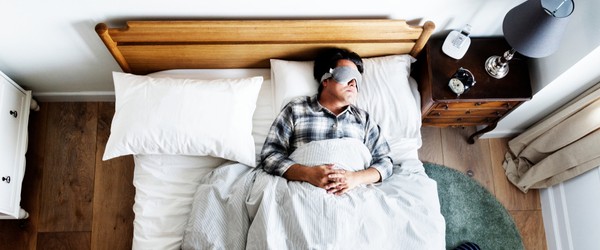
Our survey revealed that most people (64%) do not use sleep aids to help them to get off to sleep. Of those who do use sleep aids, 11% of respondents use a sleep spray.
“Sleep aids help you to relax and things like aromatherapy oils do help to soothe us via parasympathetic nervous system especially if used in the bath. Sleep sounds are good but don’t work for everyone – there are lots to choose from (I like rain noises).”
Rob Hobson
Not creating a great sleeping environment
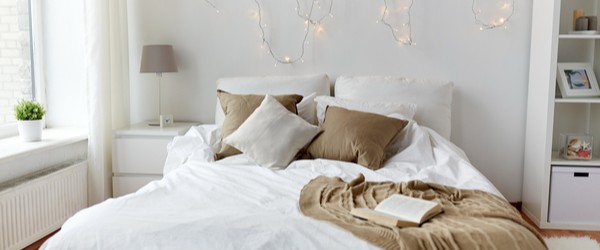
Creating a restful environment is conducive to the amount and quality of your sleep. Ideally, your bedroom should only be used for sleeping but this can be challenging
“Quality of bedding is very important and I don’t ever skimp on that.”
Penny Weston
And we couldn’t agree with Penny more! Duvets are important too.
“Getting a duvet tog that is a happy medium is a good idea. A tog of 1-4 might mean you feel too cold at night, a tog of 12-13 may leave you sweltering. But a tog of 7- 10 will be perfect all year round.”
Carl Walsh
Check out our duvet buying guide here.
Tips from the experts
So, if you had to change one thing in order to sleep better, what would it be? We asked our sleep experts what their number one tip would be:
“My main tip is a lifestyle tip, don’t drink caffeine or smoke after 12 noon!”
Carl Walsh
“My main tip would be to try and aim to have the same bedtime and same waking time every day (where feasible).”
Penny Weston
“Focus all your efforts on getting to bed at the same time every night and waking up at the same time every morning. This should be the goal as when you do this you are working in harmony with your circadian rhythm and most likely to be feeling your best.”
Rob Hobson
“When you’re wrestling with the pillow and frustrated with your busy-bed-head then getting up to not waste time and accomplish something is counterintuitive. It’s likely that you haven’t given yourself enough time and space to wind down for the night and you aren’t ready to rest. Do something that relaxes you like reading a book, or listening to sleep meditation, or an audio bedtime story while resting your eyes. Cultivating the art of doing nothing is the best thing you can do for a restful night’s sleep.”
Hope Bastine, sleep expert at Simba Sleep
At Linens Limited, we’d also recommend reviewing and adjusting your sleep environment. Small changes such as introducing blackout curtains, upgrading to softer sheets, introducing a firmer pillow or adding a throw for warmth and weight can make all the difference.
Keep an eye on the blog, Facebook or subscribe to our newsletter for further top tips on how to sleep better. As a bonus, after signing up all newsletter subscribers receive a 10% off discount on their first purchase with Linens Limited.
Add a comment

